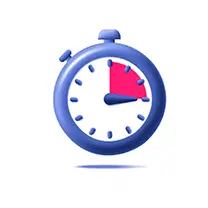
Social media has become an integral part of modern society, with billions of people worldwide using platforms such as Facebook, Twitter, Instagram, and TikTok to stay connected, share ideas, and engage in discussions. While social media offers numerous benefits, it also has negative impacts and influences on society. This article examines the effects of social media on society, focusing on mental health concerns, cyberbullying, misinformation, addiction, building communities, improved communication, educational benefits, impact on teens and young adults, interpersonal relationships, and political and social movements.
Numerous studies have linked social media use to mental health issues, including depression, anxiety, loneliness, isolation, sleep disruption, and body image issues. A study published in the Journal of Social and Clinical Psychology found that limiting social media use to 30 minutes per day resulted in significant reductions in loneliness and depression among young adults (Hunt, Marx, Lipson, & Young, 2018).
Cyberbullying and online harassment are widespread on social media platforms, with devastating consequences for victims. A report by the Cyberbullying Research Center found that 36.5% of students in the United States have experienced cyberbullying (Patchin & Hinduja, 2021). Cyberbullying can lead to depression, anxiety, and even suicide.
Social media platforms have become breeding grounds for misinformation, with false information spreading rapidly and widely. A study published in the journal Science found that false news stories were 70% more likely to be retweeted than true stories (Vosoughi, Roy, & Aral, 2018). Misinformation on social media can have serious real-world consequences, such as the spread of conspiracy theories and the undermining of public health efforts.
Social media addiction is a growing concern, with people compulsively checking their social media accounts, even when it interferes with their daily lives. A study published in the Journal of Behavioral Addictions found that social media addiction was associated with sleep disturbances, depression, anxiety, and impaired academic performance (Király, Potenza, Stein, King, & Demetrovics, 2019).
Social media platforms provide opportunities for people to connect with others who share similar interests, beliefs, and experiences. These online communities can offer support, encouragement, and a sense of belonging.
Social media allows people to communicate and share information quickly and easily, breaking down geographical barriers and fostering global connectivity. Strategic social media usage can enhance business performance and allow companies to achieve longevity and success in the digital age (Wright & Clarke, 2018).
Social media can be a valuable educational tool, providing access to a wealth of information and resources. Teachers and students can use social media to collaborate, share ideas, and engage in discussions (Junco, Heiberger, & Loken, 2011).
Social media has a significant impact on teens and young adults, influencing their self-esteem, body image, relationships, and mental health. A study published in the journal Computers in Human Behavior found that social media use was positively associated with depression, anxiety, and sleep disturbances in adolescents (Woods & Scott, 2016).
Social media can both enhance and hinder interpersonal relationships. While it allows people to stay connected and engage in discussions, it can also lead to feelings of jealousy, inadequacy, and loneliness. A study published in the journal Cyberpsychology, Behavior, and Social Networking found that social media use was positively associated with relationship dissatisfaction and infidelity (Muise, Christofides, & Desmarais, 2009).
Social media plays a significant role in political and social movements, providing a platform for marginalized voices and facilitating the rapid spread of information. Social media has been instrumental in mobilizing protests, organizing rallies, and raising awareness of social and political issues.
In conclusion, social media has both negative and positive impacts and influences on society. While it can contribute to mental health issues, cyberbullying, misinformation, and addiction, it can also foster global connectivity, build communities, improve communication, and provide educational benefits. It is crucial for individuals and society as a whole to use social media responsibly, recognizing its potential harms and maximizing its benefits.
Hunt, M. G., Marx, R., Lipson, C., & Young, J. (2018). No More FOMO: Limiting Social Media Decreases Loneliness and Depression. Journal of Social and Clinical Psychology, 37(10), 751-768.
Patchin, J. W., & Hinduja, S. (2021). Cyberbullying and Its Impact on Students: Findings from the 2021 Cyberbullying Research Center Youth Survey. Cyberbullying Research Center.
Vosoughi, S., Roy, D., & Aral, S. (2018). The spread of true and false news online. Science, 359(6380), 1146-1151.
Király, O., Potenza, M. N., Stein, D. J., King, D. L., & Demetrovics, Z. (2019). Social networking sites and problematic Internet use: A systematic review. Neuropsychiatric Disease and Treatment, 15, 307-319.
Wright, M. F., & Clarke, I. (2018). The Role of Social Media in Shaping Today's Society. That's Clutch.
Junco, R., Heiberger, G., & Loken, E. (2011). The Impact of Twitter on College Student Engagement and Grades. Journal of Research on Technology in Education, 44(3), 223-242.
Woods, H. C., & Scott, H. (2016). #Sleepyteens: Social media use in adolescence is associated with poor sleep quality, anxiety, depression and low self-esteem. Journal of Adolescence, 51, 41-49.
Muise, A., Christofides, E., & Desmarais, S. (2009). More Information than You Ever Wanted: Does Ambient Relationship Awareness Facilitate or Undermine Romantic Relationships? Cyberpsychology, Behavior, and Social Networking, 12(4), 391-397.
Wright, M. F., & Clarke, I. (2018). The Influence of Social Media on Modern Society. WP New York University.